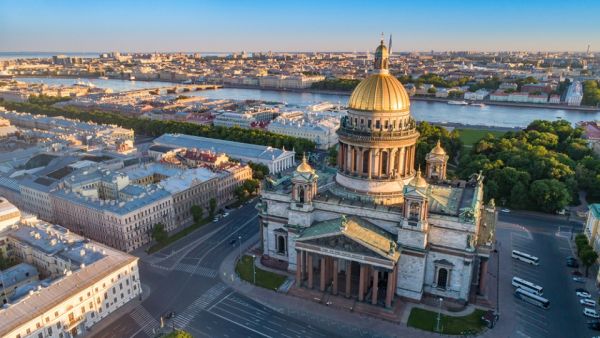Russian President Vladimir Putin signed a decree extending the electronic visa regime to the territory of St. Petersburg and the Leningrad Region on Friday, July 19.
{"preview_thumbnail":"https://cdn.flowplayer.com/6684a05f-6468-4ecd-87d5-a748773282a3/i/v-i-4…","video_id":"445b1974-5890-4f89-8a5f-3f2dca467420","player_id":"8ca46225-42a2-4245-9c20-7850ae937431","provider":"flowplayer","video":"Top 10 Tech Companies to Work for in 2019"}
The relevant document was posted on the legal information website. The official document also stated that no consular fee was to be collected for the issuance of electronic visas
"To establish that from October 1, 2019 entrance to the Russian Federation and departure from the Russian Federation for foreign citizens via the checkpoints of the state border of the Russian Federation located in the territories of St. Petersburg and the Leningrad Region can be made on the basis of regular single-entry business, tourist and humanitarian visas in the form of electronic documents," the decree read.
The e-visa would allow the foreign citizens arriving in the Russian Federation via checkpoints to freely move within the territories of St. Petersburg and the Leningrad Region. The period of authorized stay in Russia for e-visa holders will be up to eight days.
The President has tasked the government to determine particularities of electronic visas issuance for foreign citizens and their entry into the Russian Federation via checkpoints on the basis of electronic visas.
The government also need to approve the list of foreign countries whose nationals can enter the Russian Federation and depart from the Russian Federation via checkpoints on the basis of electronic visas by October 1, 2019.
It was in March 2017, that Putin had signed a law on the simplified visa regime in the territory of the Vladivostok Free Port. The electronic visa is valid for 30 days from its issue with the authorised period of stay in Russia of up to 8 days. Citizens of 18 states are eligible.
Simplified visa issue conditions in the Far East came into force on August 1, 2018.








